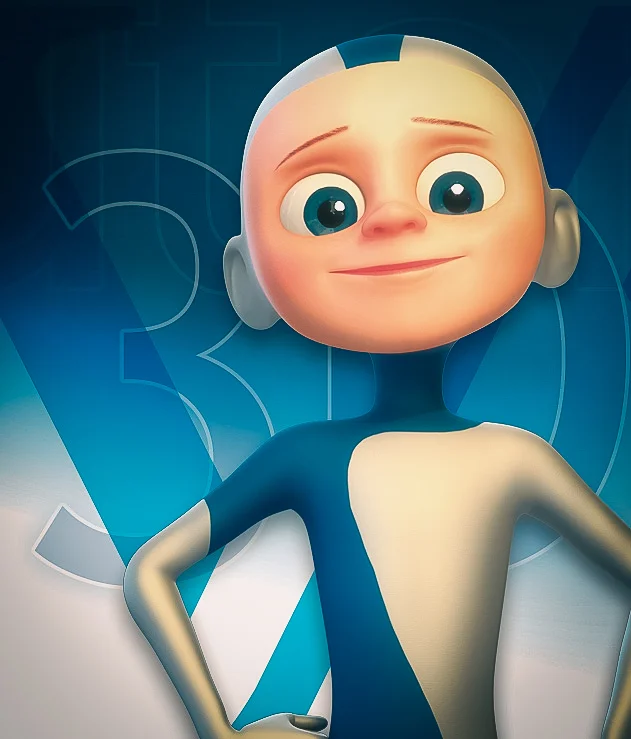
12 Reasons Why Online Education is the Future
Online education is the future. We should say that it’s because of the growth curve, and it is projected to scale from over $100B in 2015 to $325B by 2025. We could mention the fact that 77% of US companies use online education. But education isn’t just about numbers; it is the experience you receive, the training and how it improves and fits into your life plan(s) and lifestyle. Online education, especially for Animation School is the future for the following 12 reasons:
1. Scheduling
Despite what advertisements for colleges and universities portray about independent students enjoying spare time, the reality is quite different for many people. While many students in post-secondary school are on-campus, the numbers grow every year for those who are part-time or doing distance education. When it comes to people with full-time (or nearly full-time) jobs, or children, or other commitments—attending a strict schedule is prohibitive. Online education, like for Vancouver Animation School, is the top option for those who have employment commitments, children, and/or otherwise need a flexible schedule.
2. Location Independent
Post-secondary education in the past has been location-dependent. This means if you don’t live by the school you want, or can’t afford to relocate—then you could not attend there. For example, top video game design schools may not be in your area. With online education, you can attend any school you desire. The power in that is incredible, and the learning community has responded with online career programs. You can get your education in Canada, England or Singapore—without having the expenses of relocating there. For example, you may be in a rural location but want to go to a top Vancouver Animation School…with online learning you can attend the school you desire.
3. Customized Learning Experiences
Students in location-based learning programs know the struggle (all too well) of wanting a specific course, for example, Advanced 3D Modeling or Digital Matte Painting. Usually, it isn’t available and you have to take ‘The history of Art’….which is probably in a room full of students from various majors. In online education class sizes can be more fluid, teachers’ scheduling more flexible—and other elements that mean that you can get the course you want. You can also get the course you want even if you’re not available on Tuesdays from 10:30am-12:05 pm. Online learning can (not always guaranteed, but it is significantly more likely) help you to take the courses you really want.
4. Digital Community
A big objection to online learning in the past is that you don’t get the same connections as you do with your peers. However, these days with online community learning groups for students, they can connect online. This connection is outside the constraints of the 50-min class. In addition to this, there are a lot of online live classes that are being offered by online schools (such as Vancouver Animation School), where you can see, talk and collaborate with your classmates in real-time. So the opportunity to make meaningful connections that you can leverage in the future for support and job opportunities is there.
Another overlooked element of building online connections via online education is for those who may not be the social butterfly in person. ‘Shy’ or ‘introverted’ people can build an excellent community of student colleagues around them.
5. Cost Effective
Online education programs don’t need the costs associated with on-campus students such as classrooms, student services, health services, etc. Incredible teachers can also teach online classes during their ‘off time’. This means that the cost of educating you online is less than in person—so you can get the same education without the real estate costs built in.
6. Teacher Quality
There are incredible teachers, especially industry professionals, who simply can’t teach an in-person class at certain days and times because it conflicts with their schedule. Online education means super-qualified professors can still teach you, because they can fit it into their schedule without having the transportation time needed to move between buildings and campuses. You may see a specific teacher at the top of their field. However, he/she is located in Canada and by taking his/her class at Vancouver Animation School you can connect with him/her from anywhere in the world.
7. Working at Your Own Pace
While some of us learned at the average pace of our in-person schooling, many of us didn’t. This means either you were ahead of the crowd (and led to boredom-based doodling or texting), or behind and were frustrated at the pace. With online learning, you can learn at the pace that you need. A great example can be FAME learning platform for STEAM education.
8. It Preps you for a Changing Workforce
Many jobs, especially in sectors like Animation, Visual Effects, Video Game Design, etc. are location-independent. There are more people than ever working remotely or working from home (sometimes a combo of working at home and at the office). If you’re going into a field with the potentiality of working remotely or partially/fully at home, the focus and time-management strategies you learn in online education are invaluable.
9. School/Work Learning
Students taking online learning opportunities due to their work schedule have the power of a résumé behind them. The combination of real-world job experience and a solid résumé plus a certification or diploma—can have a leg up on their competition. For example, for those attending online Animation school, you can compliment that with real-world training by working at a company in that vertical.
10. Technical and Computer Skills
Many post-secondary courses teach you, or force you to learn, some computer skills, even with a non-technical program. Online education, however, builds online skills as you’re required to not only use but practically master Learning Management Systems, online document sharing, and online communication tools.
With online education, you'll be prepared for the current workforce technology needs.
11. Transfer Credits
Transfer credits tend to be easier with online education. Whether you’re thinking of taking online education to supplement your current diploma, transferring from another program or getting credits to earn acceptance to another—online education credit are well tracked and transferable.
12. Education AND (not VS) Passion
Not every student is dedicating 110% of their time to their schooling; in reality, most are not. Everybody has interests, even aside from an education you are dedicated to. The flexibility of online education is really blurring the boundaries between learning and passions. For example, if you take an online animation course, it can leave your schedule flexible enough to intern at an animation studio, or participate in or attend local animation events. By being able to pursue your passions, you can build yourself as a person and your résumé, apart from your education alone.
Online education isn’t the perfect option for everyone, but it has a number of benefits that are increasingly suiting more people’s budget, lifestyles and goals. And this is why it will continue to grow in the post-secondary education space, and become more and more prominent in the future.







